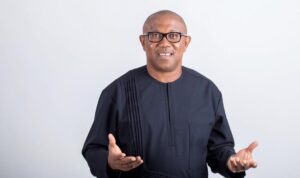
By Akudoro Gloria
The presidential candidate of Labour Party during the 2023 presidential election, Mr Peter Obi has condemned in strong term the time candidates are made to seat for JAMB exams.
In a post in his X verifiable handle, Obi described such act as reckless.
According to Obi, “I came across multiple reports of students being asked to attend a public examination by 6:30 AM, teenagers, mostly around 15-17 years old, forced to travel in the dark, even in the face of insecurity, across dangerous and unfamiliar locations, because they want to get the basic right of education and sit for JAMB examinations.
“Setting exams for vulnerable teenagers as early as 6:00 AM while transporting them across far-flung locations is reckless.
“Already, reports are emerging of students getting into accidents and losing their young lives, some going missing, and many more being subjected to unnecessary trauma. Who takes responsibility when a 15- or 16-year-old child disappears or is harmed while trying to access their right to education?
“This situation sadly exposes a deeper, systemic failure: Nigeria simply does not have enough universities and exam centres to cater to its youth.
Today, Nigeria has just about 200 universities for a population of over 200 million people. That alone means one university for every one million citizens, a very disturbing and staggering ratio that shows the dilapidated level of the country’s access to education.
“”According to the data from the UNESCO Institute for Statistics and IndexMundi, countries aiming for good development, strong economies, and broad access to higher education are expected to target a Gross Enrollment Ratio (GER) of at least 40%
“And according to these statistics, Nigeria with a population of about 230 million people and about 200 universities has a GER of about 12%
“In comparison with other countries with a high population, for example, Indonesia with about 280 million people has over 4,000 tertiary institutions and stands at a ratio of about 1 university per 70,000 people and a GER of over 45%. The country has over 10 million students enrolled in tertiary education alone spanning across various ages.
“Indonesia’s substantial investment in education is evident in its university-to-population ratio, supporting its large student population. Nigeria’s GER, on the other hand, is significantly below the global average, showing the urgent need for substantial investment in education, which would, in turn, yield national growth and development.
“Indonesia, unlike Nigeria, has universities scattered across every region, making access to exams, learning, and opportunity far more democratic and safer.
“If we had even half of Indonesia’s educational infrastructure, which would be about 2,000 universities, the Nigerian child would not be forced into life-threatening journeys just to write an exam and still face challenges of university acceptance after performing well.
“Education is not a luxury or expense, It is the biggest contributor to development for any nation, and therefore most important investment any nation can do for development.
“You cannot claim to want development while starving our young the access to knowledge. You cannot claim to value your citizens while risking the lives of teenagers every examination season.
“We must aggressively and intentionally expand our education system,’ Obi added.







